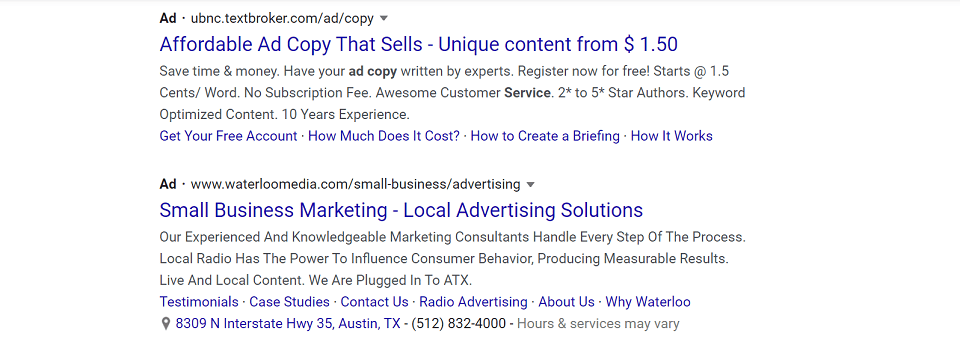As long as SEO exists, links will remain one the most important ranking signals for Google and the rest of the search engines.
Great SEO performance equals great business results. That’s why the majority of big brands, small businesses, and solo digital marketers are focusing their time and attention on the most prominent SEO practice: link building.
Building links for your website is not optional. This is particularly true if you have serious objectives of positioning yourself on the top of your niche market.
To step up your game and improve your link building performance, you must first step back.
Take time to assess whether or not you’re presently making mistakes that can backfire.
Many times, you can do more damage by undertaking the wrong link building techniques, as opposed to not doing link building at all.
That’s why we have prepared a list of 10 failing link building techniques that all marketers, webmasters, and businessmen should stay away from. Avoid these gaffs, and you can better avoid negative ranking consequences that hurt more than help.
1. Commenting on Blog Posts in a Spammy Way
Surely you have seen various old, forgotten blog posts that load extremely slowly and contain hundreds and thousands of spammy, keyword-optimized comments with links in them.
Well, that’s blog post spamming. If you’re engaged in such activities, it won’t take long until Google severely punishes your actions and pushes your rankings down.
Even though I don’t advise it, you can still build more natural backlinks here and there.
Just don’t post the same comment or link twice on the same post, or exact duplicates on dozens of different blog posts across various sites.
2. Link Networks and PBNs
There are many SEO practitioners who buy expired domains to create “private blog networks” (PBNs).
The key to this strategy is that they target domains with existing PageRank, hoping to create new sites on which to build links.
With each of these domains, they create a website that features a specific subject which is very similar to their main website.
Then, they promote the “mother” site through countless backlinks across the second domain.
Google gets smarter each day, and these techniques are already being penalized.
Do these techniques work? They can, sure.
Are they sustainable, long-term, and worth your while? Absolutely not! Even if they work temporarily, Google will eventually sniff it out. Then, you can just wait for the penalty.
3. Press Releases
In 2013-2014, marketers began to manipulate the potential of press releases as a positive ranking signal.
It wasn’t long until Google took action, forcing many press release distribution services to no-follow all the links that they have published.
Most experienced SEO practitioners understand that press releases are not the right vehicle to build links.
Quite the opposite, they know that it can even hurt their rankings because they took enough time test and find evidence.
Honestly, if you want to know for sure what you should and shouldn’t do, you should stay consistent with all your research and work.
4. Spamming Links Through Your Forum Profile Signature
You can actually leave a lot of backlinks by frequently replying to forum threads.
Your posts, which feature your profile’s description at the end of each post, feature a backlink.
Your comment may stick around for a while. So as long as that backlink stays in your signature, all of your posts can be counted as relevant backlinks.
It may sound like the perfect solution: the more replies you make, the better your SEO performance should get.
Well, just like blog commenting, this tactic can easily generate negative side-effects.
Regardless, when compared to high-quality backlinks that come from authoritative website and platforms, signature links won’t produce tremendous effects. Spam just a little and you’ve done more harm than good!
5. Reciprocal Linking and Organized Link Exchanging Platforms
If you ever thought about swapping backlinks in order to manipulate Google, step back and throw away that thought. Google will recognize what you are doing, and it will backfire.
Google has entire teams of manual reviewers who dedicate their days to finding the reciprocal backlinking services that you may be using.
The search engines also have other tools and algorithms to discover “anomalies” such as two or more sites linking to each other on a very consistent basis.
Unless you exchange the links with a highly reputable website in order to provide more value, that’s fine.
6. Going Black Hat by Redirecting Domains
A really new trick that many SEO professionals have recently started to fall for… 301 redirecting specific domains is to funnel link juice right into their web proprieties.
Just like many other black hat SEO techniques, it can work well as long as you execute it perfectly.
However, once Google finds out…poof, your rankings are gone and your entire time spent on building the juice flow will be in vain.
7. Spamming Link via Free Blog Properties (Web 2.0)
Building unnatural links using free blog properties (sometimes referred to as Web 2.0 sites) is yet another black hat SEO technique you should stay away from.
Web 2.0 sites include a wide range of domains, such as Blogger, Tumblr, or Weebly.
Typically, this tactic is executed with the purpose of posting heavily keyword-optimized articles full of unnatural backlinks.
That’s a huge link-building mistake, a big no-no. You should stay away from it altogether, because it may be the ugliest form of spamming, and one that Google strongly frowns upon.
8. Submitting Your Content to Low-Quality Content Directories
Content directory submissions were very effective in the past.
However, after Google pushed out their series of Penguin updates, the real benefits of content directories have faded away.
Instead of focusing on content directories, you’ll be far better served to write more guest posts.
Spend your time and effort in pursuit of strong, relevant backlinks that come as consequence of delivering true value.
9. Submitting Your Blog Posts in a Spammy Way
A few years back, submitting your content to content syndication platforms such as Ezine Articles represented a terrific way of gaining competitive advantage in your niche environment.
Unfortunately, just like with many of the older SEO tactics, webmasters started to abuse it. Google had to fight back.
Michael Doug, the SEO specialist at BestEssays, points out a very interesting fact:
“Google has developed incredibly powerful mechanisms that detect any form of irregularities, spam, or unusual posting behavior that comes from these types of sites. I’d suggest you work on something else, but if you really want to attempt this strategy, ensure that your blog posts are never spammy!”
10. The Over-optimization of the Anchor Text
Over-optimization is extremely risky. Google can easily identify the authority of the brands who post.
If you try to manipulate the anchor text, it will look unnatural and get flagged. Web crawlers may not fully identify “spam” at first, but your activities will still remain suspicious.
If you’re not careful, Google could initiate a manual review to analyze your link building strategies. More often than not, there will be negative consequences.
Takeaways
Take advantage of these suggestions. If you’ve been practicing any of these outdated or black hat SEO techniques, abandon them now!
Use this article as a reference but don’t stop here. Study more, test more, and try to see for yourself!
Nevertheless, use intuition and common sense when deciding how to promote your website. When you feel that your link building strategy may be too aggressive, ask yourself the following question:
“If Google would actively assess my link-building strategy, would they agree with it or would I have good reason to fear that they will penalize my website?”
A little rational thinking goes a long way. Use that to your advantage. Good luck!
Feature Image Credit: CC 0; Public Domain. Image sourced from Unsplash.
Disclaimer: The views and opinions stated in this post are that of the author, and Return On Now may or may not agree with any or all of the commentary.
Warren Fowler
Latest posts by Warren Fowler (see all)
- 10 Failing Link Building Techniques - April 10, 2018





